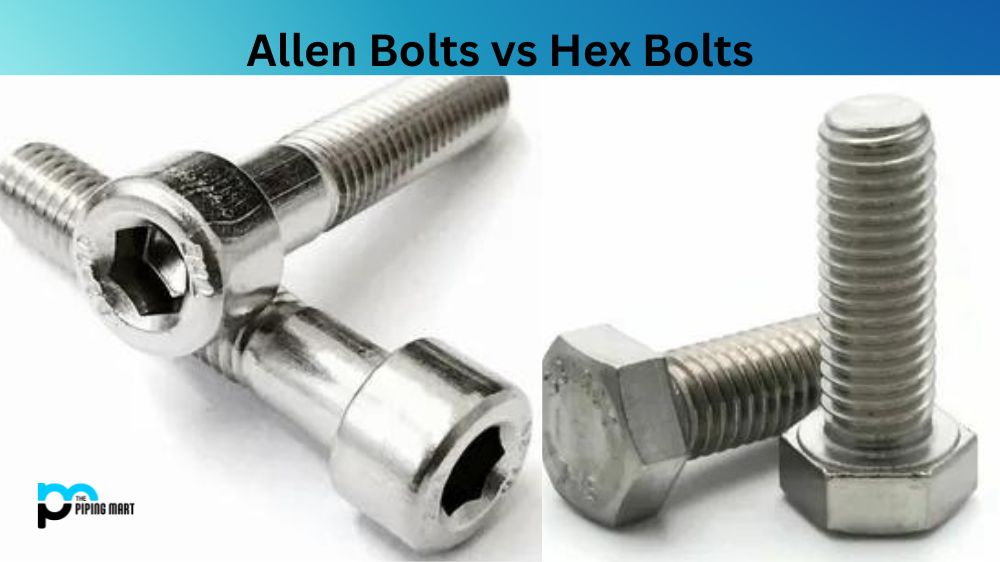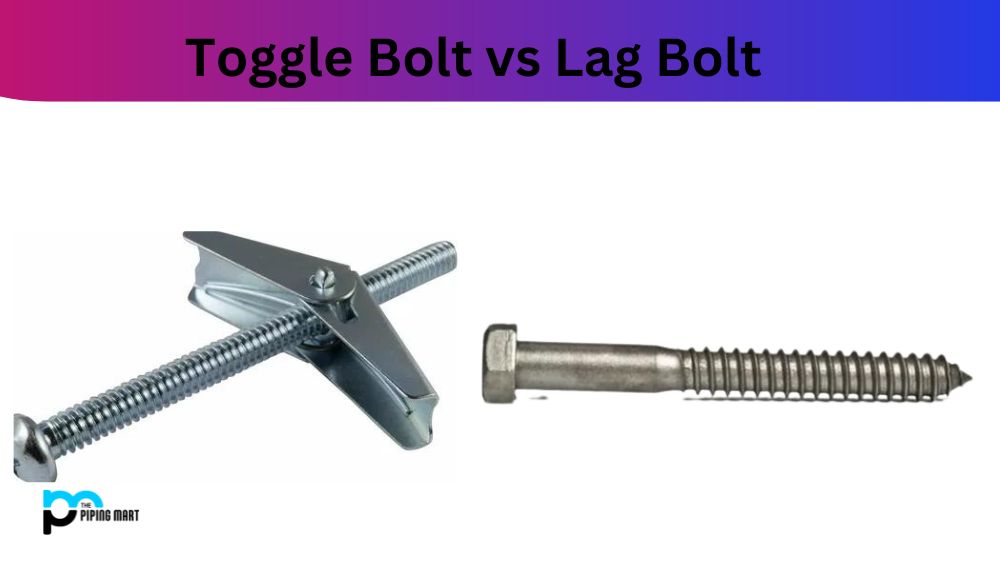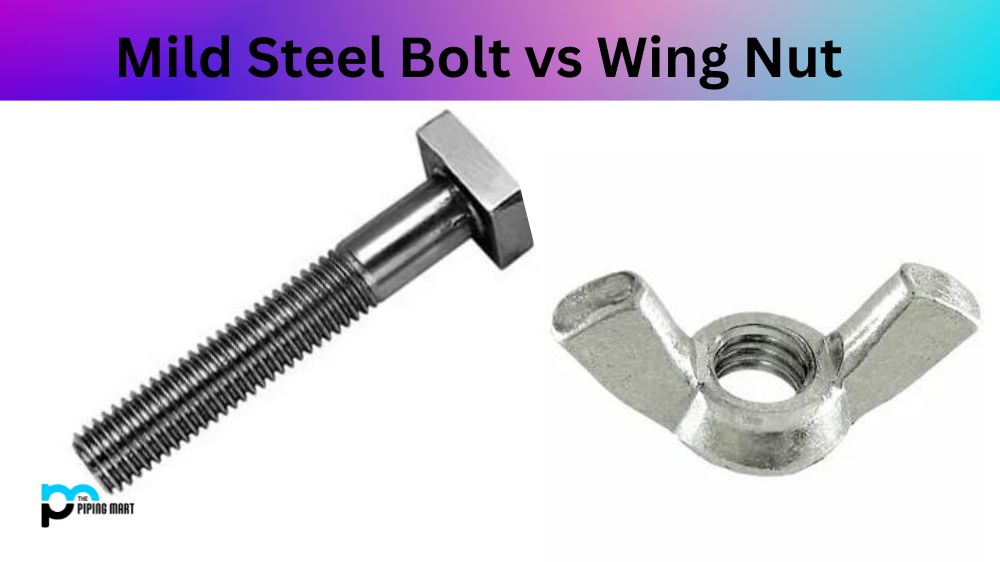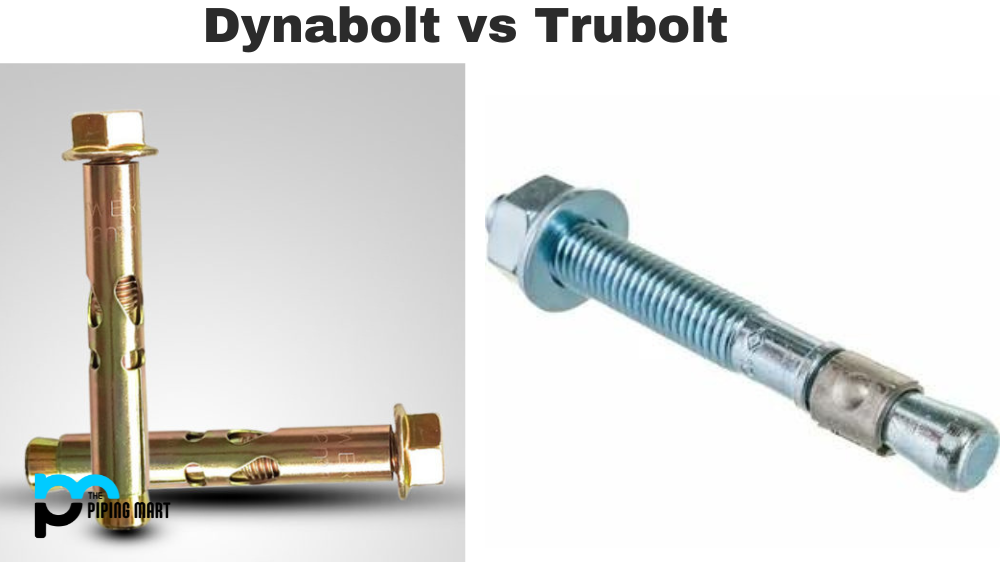Fasteners are an essential component in construction and manufacturing. Regardless of the application, bolts are critical components within this field. However, not all bolts are created equal. There are differences! Allen and hex bolts may be similar in appearance but still have differences in characteristics, design, and application. In this blog post, we will explore the differences between Allen bolts and hex bolts to help you make informed decisions on your next bolt purchase.
What are Allen Bolts and Hex Bolts?
Allen bolts and hex bolts are both fasteners used to fasten two or more components together. They are usually made of stainless steel, carbon steel, or other materials based on specific applications. The most noticeable difference between Allen and hex bolts is that Allen bolts have an internal hexagonal socket at one end, while hex bolts have hexagonal heads.
Difference Between Allen Bolts and Hex Bolts
Design and Appearance
Hex bolts have a wider surface area, making them more prominent and easier to grip with a wrench or pliers. The wider surface area contributes to their strength when under heavy loads. On the other hand, Allen bolts are slender and can be easily torqued or adjusted using an Allen wrench in confined spaces. Due to their smaller design, Allen bolts are perfect for machines, especially when you want to keep them looking sleek and streamlined.
Application
Hex bolts are often used on heavy-duty projects, building construction, and outdoor infrastructure. The wider head and design are critical for heavy-duty applications and provide a more robust bearing surface to handle tons of weight. On the other hand, Allen bolts are perfect for light-duty applications, electro-mechanical systems, and precision equipment, as they offer a streamlined appearance and small size.
Torque Capacity
For heavy-duty applications, hex bolts have a greater torque capacity than Allen bolts, thanks to their wider head. In contrast, Allen bolts have a smaller frame, making them suitable for low-torque applications. Due to the small and sleek design of Allen bolts can be easily torqued and adjusted using an Allen wrench, even in tight spaces.
Cost
Both bolts are generally affordable, but compared to hex bolts, Allen bolts can be slightly expensive due to their advanced design and the need for specialized tools. Nevertheless, in the long run, the cost may be worth it, as Allen bolts perform better in certain applications and offer more precise tightening and torque.
Conclusion:
In summary, we’ve examined the differences between Allen bolts and hex bolts. While these bolts may appear similar, Hex bolts have a more extensive application range and are suitable for heavy-duty jobs, outdoor infrastructure, and building construction. In contrast, Allen bolts are perfect for light-duty applications, electro-mechanical systems, and precision equipment. However, regardless of which bolt you choose, choosing the best bolt for the required application is essential. So, take the time to investigate your options and make an informed purchase.

A passionate metal industry expert and blogger. With over 5 years of experience in the field, Palak brings a wealth of knowledge and insight to her writing. Whether discussing the latest trends in the metal industry or sharing tips, she is dedicated to helping others succeed in the metal industry.




